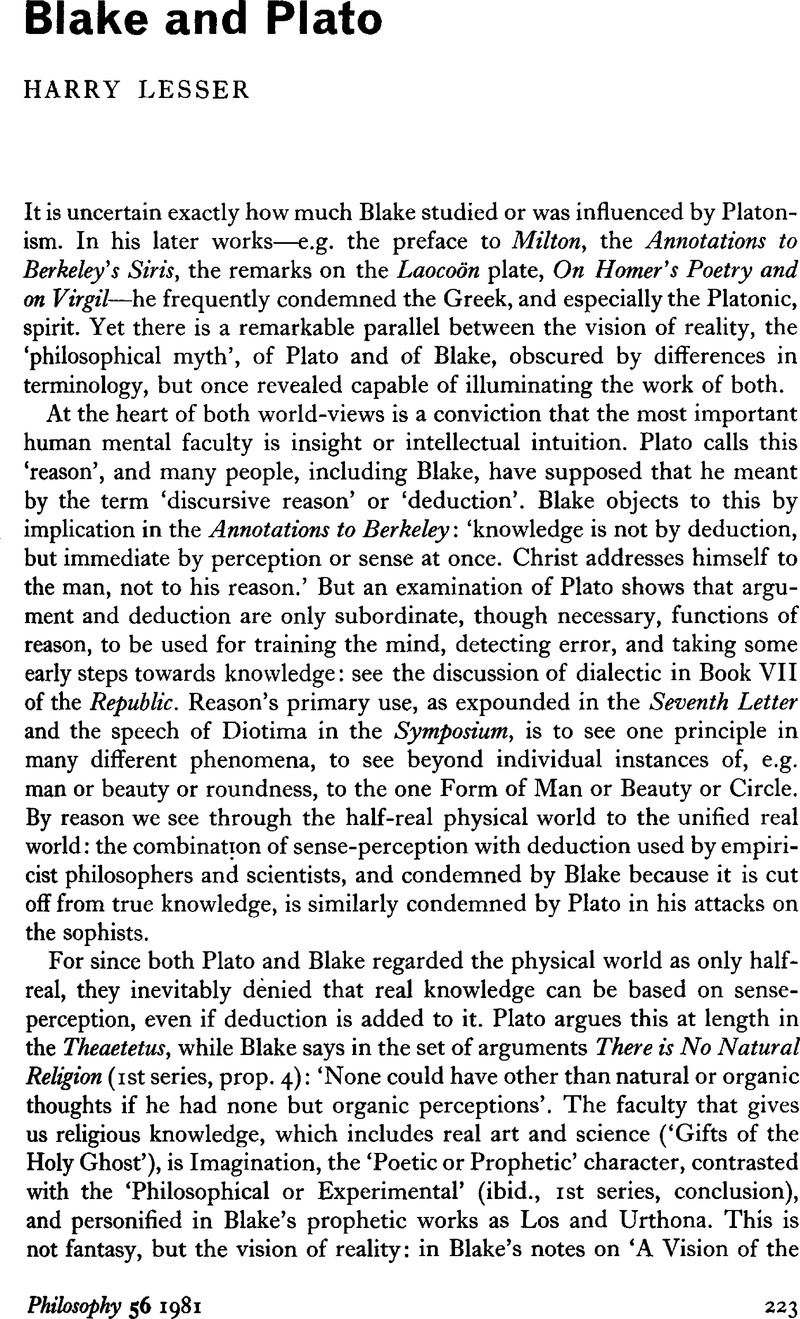Article contents
Blake and Plato
Published online by Cambridge University Press: 30 January 2009
Abstract

- Type
- Discussion
- Information
- Copyright
- Copyright © The Royal Institute of Philosophy 1981
References
1 It might be objected that most of my quotations from Blake come from private notes and not from his major published works. But these notes are often valuable aphorisms in their own right, and written for other people to read; and more importantly, they do seem to illuminate Blake's published work significantly. It might also be objected that Blake was not a philosopher, but a poet and artist, and it is a distortion to concentrate too much on his ideas or message. But Blake, despite his strictures on philosophy, was a very philosophical poet— just as Plato, despite his reservations about poetry, was a very poetical philosopher.
2 My warmest thanks are due to Mr Greville Lindop and Miss Una Allis, of the Department of English of the University of Manchester, for a great many helpful criticisms of an earlier draft of this paper.
- 1
- Cited by


